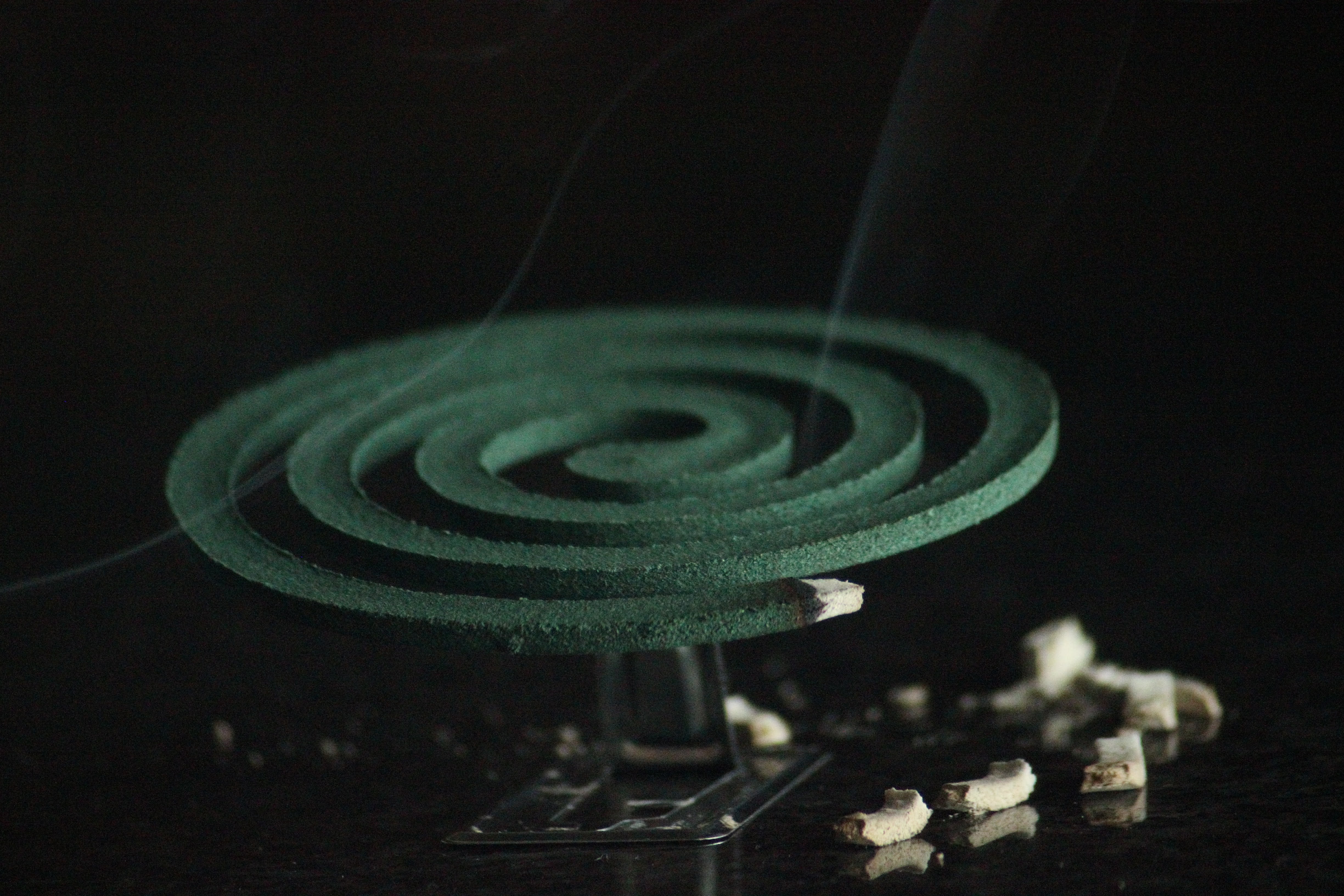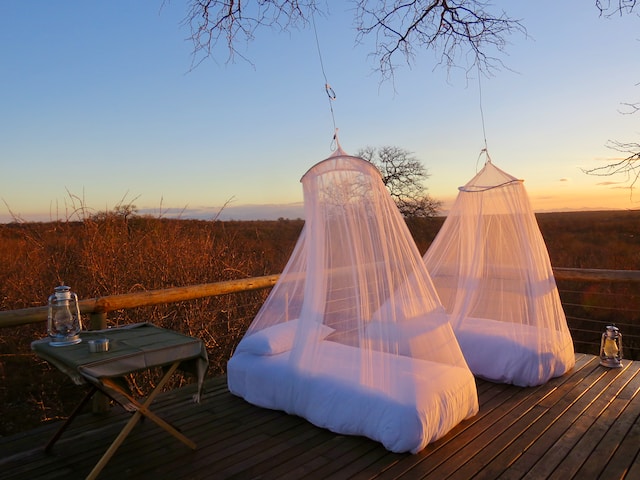
Mosquito insence burning
Health aspects always play a role when traveling abroad. South Africa is on a different continent and may seem exotic – but in terms of diseases, we don’t have that much to offer here.
Vaccinations against yellow fever or typhoid are unnecessary. Should you already been vaccinated against yellow fever it’s good to know that the yellow fever vaccination protects you for a lifetime. If you have been to a yellow fever country before entering South Africa, the South African government will want to see a vaccination when you enter South Africa.
How is malaria transmitted?
Malaria is transmitted from an infected person to a person who is not yet infected by an insect bite from a mosquito. The infected person can also be an animal, which is why it is not possible to eradicate malaria. The female Anopheles mosquito sucks blood and uses her saliva to transmit the pathogens, for example Plasmodium falciparum, to the next person she bites. There are six species of Plasmodium that cause malaria in humans. The best known and most widespread species in parts of South Africa is malaria tropica, which is transmitted via the single-celled parasite mentioned above.
Plasmodium falciparum travels with the blood to the liver, where it multiplies but does not yet produce symptoms. Then it travels around in the body and destroys red blood cells, which of course is not cool.
How do you protect yourself from infection?
The best protection against mosquito bites is to wear long-sleeved clothing and long pants during dusk.
Try to cover open areas of skin as much as possible. Mosquitoes are usually out and about at dusk – hardly during the day. In the evening around the campfire in the camp in Kruger National Park, you should wrap up well and rub the unprotected areas with a mosquito repellent. Some mosquitoes are already immune to the sprays that are still used in many places to fumigate hotel rooms, for example. DEET is not only harmful to the environment, it is also not ideal for us humans (as part of the environment…).
There is no vaccination against malaria that really protects. The ‘RTS,S’ vaccine developed over 30 years of work prevented just 30% of malaria cases in initial trials in 2019. Since then, nothing more has been heard of ‘RTS,S’. Prophylactic medication can be taken, which comes with a ‘nice’ range of side effects that can ruin your vacation.

What to do?
Like any native mosquito, Anopheles mosquitoes are attracted to the human scent, which signals to them: 5 liters of delicious blood are HERE. Insatiable…. anyway. So the aim is to cover it up. Essential oils immediately spring to mind, don’t they? And: exactly! The right mixture also helps to distract the mosquitos.
Fanning mosquito coils (the same as the electric mosquito plugs) can help, but these beasts usually contain synthetic pyrethroids, which are harmful to children and babies. Oh! And not for adults? I don’t like being taken for a ride. Synthetic insecticides cannot be healthy by definition, because they kill insects. The poisoned survivors may be eaten by a bird, which in turn may be eaten by another predator. The poison ends up in the environment and who is at the end of the food chain? Well, us (and a few other apex predators and pigs, which we also eat, and anchovies, which…). Poison is not a solution for people who think holistically.
You have to reapply the natural mixtures of essential oils every 2 hours, because the odorants are ethereal, they evaporate. Recipes can be found here. It also helps to be near someone who always gets stung :D. In homeopathy there is the malaria nosode, which you can obtain abroad. In Germany, where people are particularly interested in eradicating naturopathy, you cannot get this medicine.
Infected – and now?
Unfortunately, the first signs are relatively unspecific: Headache, fever and chills. But, if you have been in a malaria area and 14 days later these symptoms appear, then it seems obvious to do a malaria test. What is good to know is that even without any treatment, only about 200 out of 1000 seriously ill people die. In 19 years, 25054 travelers from the UK contracted malaria, 184 of whom died. First of all, this means that many (an unknown number that is being concealed from us. However, in the years in question, around 39600000 Brits traveled abroad every year) were bitten, but were able to fight off the infection on their own (with their own immune system). Only 25054 fall so seriously ill that they seek medical help. Of course we don’t know which foreign countries the Brits traveled to, certainly not all to an area where there are Anopheles mosquitoes. But as with all statistics, it is important not to lose sight of the proportions. I’m just saying: SARS-COV II.
So if you are infected with Plasmodium falciparum, then artesunate, a derivative of mugwort, will help you. This is also very interesting, because for the reasons already mentioned, herbal medicine has a hard time in Germany and Artemisia annua has been used for thousands of years in traditional Chinese medicine, but also for hundreds of years in alternative medicine.
The difficulty of the matter is bioavailability, i.e. you can’t take so much mugwort that it actually helps…but hold on! There was also homeopathy, where everything is potentized so that it is more effective.
Everyone is to find what they believe in and acts accordingly.
